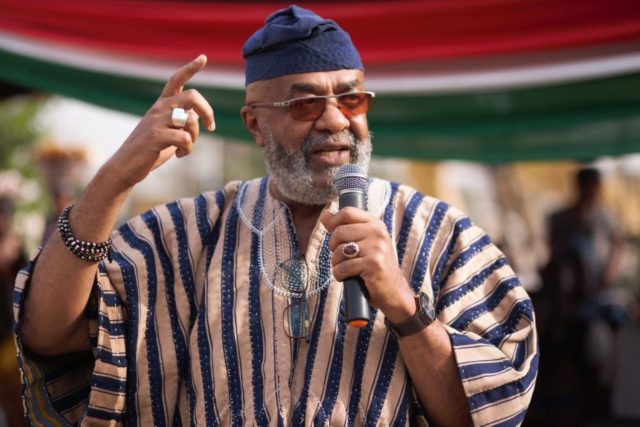Ghana’s political landscape has been roiled by controversy following the opposition New Patriotic Party’s (NPP) announcement of a demonstration against the suspension of Chief Justice Gertrude Torkornoo.
The move has drawn sharp rebuke from Alhaji Said Sinare, a prominent figure in the ruling National Democratic Congress (NDC), who dismissed the protest as a politically motivated maneuver rather than a genuine defense of judicial integrity.
Sinare, a former Ghanaian ambassador to Egypt and Saudi Arabia and current National Chairman of the NDC’s Zongo Caucus Working Committee, criticized the NPP in a social media statement, accusing the party of hypocrisy. He highlighted the NPP’s past governance, alleging it compromised judicial independence by appointing loyalists to key positions. “The NPP eroded institutional integrity for political gain during their tenure,” Sinare wrote. “Now they seek to exploit judicial issues to revive their fading relevance.”
The suspension of Chief Justice Torkornoo has intensified debates over judicial impartiality in Ghana. While the NPP frames its protest as a defense of judicial independence, critics like Sinare argue the party’s stance is inconsistent with its historical actions. He pointed to Torkornoo’s tenure, citing concerns over administrative transparency and rulings perceived as biased, which he claims justified her suspension.
The NDC has largely avoided official commentary on the matter, though party members like Sinare have openly challenged the NPP’s narrative. Sinare urged Ghanaians to reject the protest, framing it as a bid for power rather than justice. “This demonstration is not about safeguarding institutions it’s about reclaiming political leverage,” he stated.
Ghana’s judiciary has long been a flashpoint in partisan rivalries. Under the NPP’s previous administration, accusations of judicial politicization surfaced, including allegations of shielding allies from accountability. Conversely, the NDC has faced similar criticisms during its governance, underscoring a cyclical pattern of distrust in institutional neutrality.
The planned protest arrives amid heightened political tensions ahead of Ghana’s 2024 elections, with both major parties positioning themselves as guardians of democratic norms. Analysts note that public perception of this dispute could influence voter sentiment, particularly among undecided constituencies wary of perceived opportunism.
Historically, judicial controversies in Ghana have often spurred public demonstrations, reflecting broader societal demands for accountability. However, the efficacy of such protests hinges on their perceived legitimacy. For the NPP, aligning with judicial reform rhetoric may resonate with voters disillusioned by governance scandals, but risks backlash if seen as insincere.
As the NPP mobilizes supporters, the NDC’s cautious official stance contrasts with Sinare’s vocal critique, revealing internal strategies to balance grassroots mobilization with diplomatic restraint. The outcome of this confrontation may hinge on whether the public views the protest as a principled stand or a partisan spectacle.
Ghana’s judiciary remains central to its democratic framework, and the resolution of this dispute will test institutional resilience amid deepening political polarization. For now, the clash underscores the enduring challenge of separating judicial accountability from political agendas in a nation where the two are often inextricably linked.
Send your news stories to newsghana101@gmail.com
Follow News Ghana on Google News














